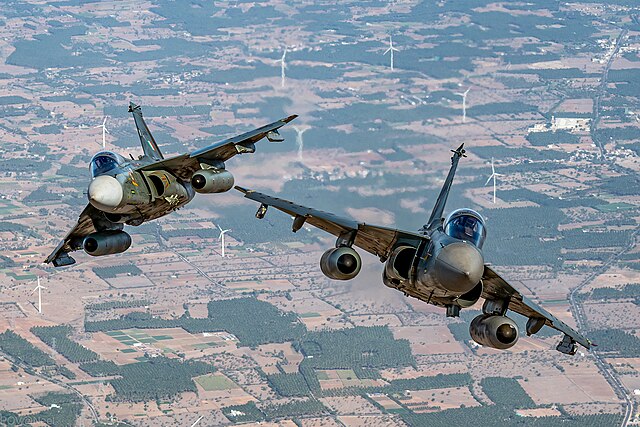Directed Energy Weapons in Indian Defence: The Future of High-Tech Warfare
What Are Directed Energy Weapons?
DEWs are advanced military systems that use concentrated energy—like lasers, microwaves, or electromagnetic waves—to disable or destroy targets. Unlike traditional guns or missiles, they hit with near-instantaneous speed, extreme accuracy, and minimal collateral damage. In India, this technology is rapidly transitioning from labs to operational deployment.
DRDO’s Breakthroughs
India’s DRDO has been leading the way. In April 2025, the Mk-II(A) laser DEW was successfully tested in Kurnool. This indigenous system neutralized multiple drones simultaneously and disabled surveillance antennas in real-time. What makes it remarkable is its cost-efficiency — each “shot” costs as little as a few liters of petrol, a fraction compared to traditional missiles.
Indigenisation & Industrial Partnerships
Over 70% of the DEW components are now indigenously designed and manufactured. Key contributions come from DRDO labs like CHESS, LRDE, IRDE, and DLRL, along with private defence industry partners. Critical systems such as laser sources, beam combiners, and targeting sensors are fully developed within India, boosting self-reliance in high-tech defence capabilities.
Strategic Importance
DEWs are more than just fancy lasers—they are strategic tools. They provide:
- Rapid engagement at the speed of light
- High precision targeting with minimal collateral damage
- Low operational cost per shot
- Enhanced stealth and minimal detectability
These advantages make DEWs ideal for counter-drone operations, border security, and even anti-missile missions. They complement AI-driven surveillance and targeting systems, forming a new layer of modern warfare technology.
Challenges Ahead
Despite breakthroughs, DEWs face challenges:
- Atmospheric conditions like dust, smoke, and fog can reduce laser effectiveness over long distances.
- Mounting high-power systems on mobile or airborne platforms requires advanced thermal management and compact power supplies.
- Some advanced components may still rely on foreign technology or collaboration.
Future Roadmap
India aims to develop higher-power systems exceeding 30 kW, potentially scaling up to 50–300 kW in coming years. These could be deployed on naval ships, aircraft, and border defense platforms. Coupled with AI-driven targeting and real-time threat analysis, DEWs will redefine how India approaches high-tech defense operations.
Global Context
Globally, nations like the USA, Israel, and China are racing to perfect DEWs. Systems like Israel’s Iron Beam showcase the potential of low-cost, rapid-response laser defense against drones and missiles. India’s DEW program is poised to join this elite technological frontier.
Why You Should Keep Watching
Directed Energy Weapons are not just science fiction—they are a reality shaping India’s defense landscape. With AI integration, indigenous manufacturing, and rapid technological progress, these systems will be at the forefront of future warfare. Stay tuned, because the next leap in India’s defense capabilities is just around the corner.
Related Articles You Can Explore:


